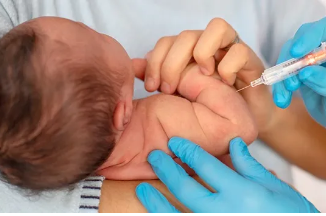World Immunization Day Observed on November 10
World Immunization Day is observed annually on November 10. It aims to raise awareness about vaccines. Vaccines play a vital role in preventing infectious diseases. They protect public health and save millions of lives globally each year.
Significance of Vaccination
Immunisation is one of the most effective health interventions. It helps control and eradicate diseases like measles, polio, tuberculosis, and COVID-19. Vaccines reduce the incidence of infectious diseases. They also strengthen community health by building herd immunity. This day encourages governments and healthcare providers to promote vaccination. It aims to extend immunisation coverage, especially to underserved populations.
Challenges in India
In India, World Immunization Day holds particular significance. The country faces unique challenges in reaching remote areas. Children remain at important risk due to being unimmunised or partially immunised. Partially immunised and unimmunised children are more susceptible to diseases. They face a much higher risk of mortality compared to fully immunised children.
India’s Public Health Strategy
Immunisation has been a central focus of India’s public health strategy for decades. Remarkable progress has been made in reducing disease prevalence and child mortality rates. World Immunization Day serves as an opportunity to reaffirm India’s commitment to universal immunisation. It reflects on progress made through initiatives like the Universal Immunization Programme and Mission Indradhanush.
Universal Immunization Programme (UIP)
The Universal Immunization Programme (UIP) is a comprehensive public health initiative in India. It aims to provide life-saving vaccines to millions of newborns and pregnant women each year. Launched in 1978 as the Expanded Programme on Immunization, it was rebranded in 1985. The UIP extended its coverage to rural areas, addressing healthcare disparities.
Historical Developments of UIP
In 1992, UIP became part of the Child Survival and Safe Motherhood Programme. Later, in 1997, it was integrated into the National Reproductive and Child Health Programme. Since 2005, under the National Rural Health Mission, UIP has been a central component of public health efforts. It focuses on ensuring vaccines reach every child, even in remote parts of the country.
Achievements of UIP
The UIP targets an annual reach of around 2.67 crore newborns and 2.9 crore pregnant women. It has proven to be one of the most cost-effective health interventions in India. The under-5 mortality rate has decreased from 45 per 1000 live births in 2014 to 32 per 1000 live births by 2020.
Current Coverage Statistics
Efforts to vaccinate all eligible children continue. The country’s Full Immunization Coverage for FY 2023-24 stands at 93.23% nationally. This figure reflects the ongoing commitment to improving public health through vaccination. State-wise coverage can vary, denoting areas for targeted improvement.
Important Facts for Exams:
- Universal Immunization Programme (UIP): The UIP is a major public health initiative in India. It provides vaccines to millions of newborns and pregnant women annually. It began in 1978 and was rebranded in 1985.
- Mission Indradhanush: Mission Indradhanush aims to improve immunisation coverage in India. It targets underserved populations. The initiative focuses on providing vaccines for preventable diseases. It seeks to reach every child effectively.
- Child Survival and Safe Motherhood Programme: This programme was introduced in 1992. It integrates child health and maternal health initiatives. The goal is to reduce mortality rates among mothers and children. It was later merged into UIP.
- National Rural Health Mission: Launched in 2005 the mission aims to enhance healthcare in rural areas. It focuses on improving access to essential health services. This initiative supports the UIP’s vaccination efforts effectively.
Month: Current Affairs - November, 2024
Category: Government Schemes Current Affairs


